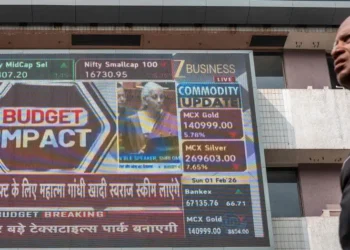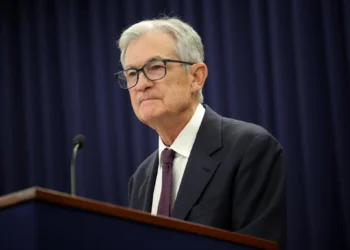PARIS (Realist English). France’s borrowing costs edged higher on Monday after Fitch Ratings downgraded the country’s sovereign credit rating from AA- to A+ with a stable outlook. The agency cited a “high and rising debt ratio” and “political fragmentation” that continues to hinder fiscal consolidation.
On Monday morning, the yield on France’s 10-year government bond briefly rose 7 basis points to 3.51%, while the 30-year yield climbed 8 basis points to 4.34%, before stabilizing. Analysts noted that the downgrade was largely anticipated after the collapse of Prime Minister François Bayrou’s government following a failed confidence vote.
President Emmanuel Macron swiftly appointed Sébastien Lecornu, the former defense minister, as France’s fifth prime minister in under two years. However, protests erupted on the day of his appointment, and further union-backed demonstrations are planned this week, underscoring the challenges facing the new head of government.
Fitch projects that France’s fiscal deficit will stand at 5.5% of GDP in 2025, compared with 5.8% in 2024, but still well above the eurozone median of 2.7%. The agency also expects public debt to rise from 113.2% of GDP in 2024 to 121% by 2027, warning there is no clear horizon for debt stabilization.
Further reviews loom: Moody’s is scheduled to publish its assessment on October 24, while S&P Global Ratings will issue its update on November 28. Analysts at ING said spreads on French bonds already reflect expectations of multiple downgrades, but added that the situation is unlikely to broaden into a eurozone-wide crisis.
One of Lecornu’s first decisions was to abandon plans to abolish two public holidays — part of Bayrou’s unpopular austerity package — in an effort to ease political tensions. Yet the broader question remains whether his government can push through spending cuts and tax increases needed to restore investor confidence and bring France’s fiscal path closer to stability.


















